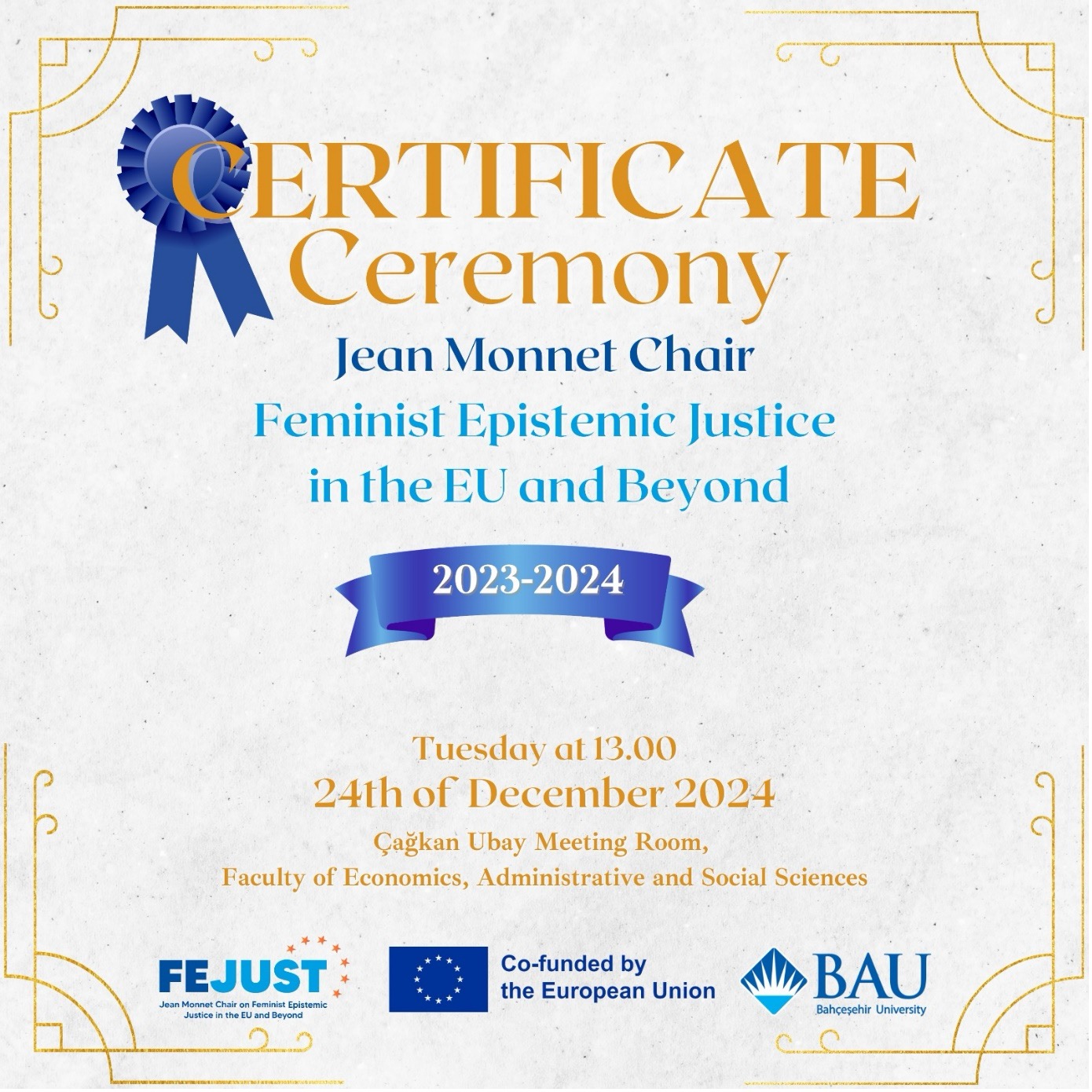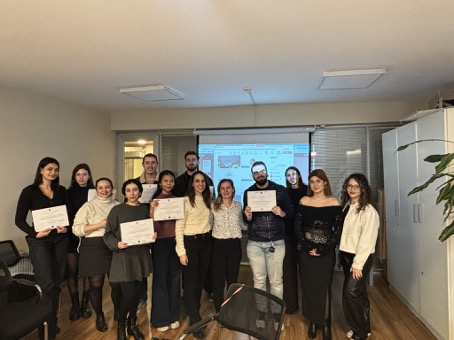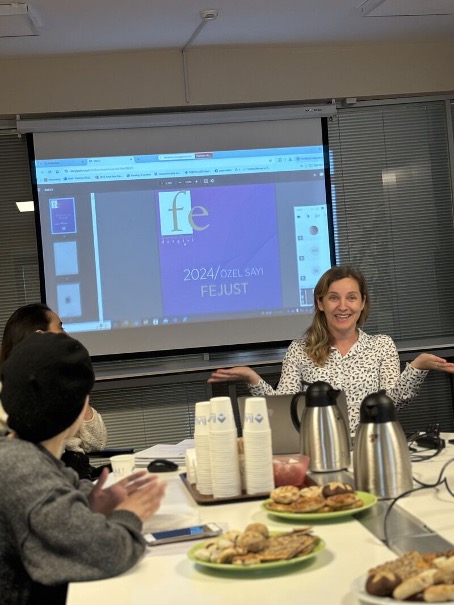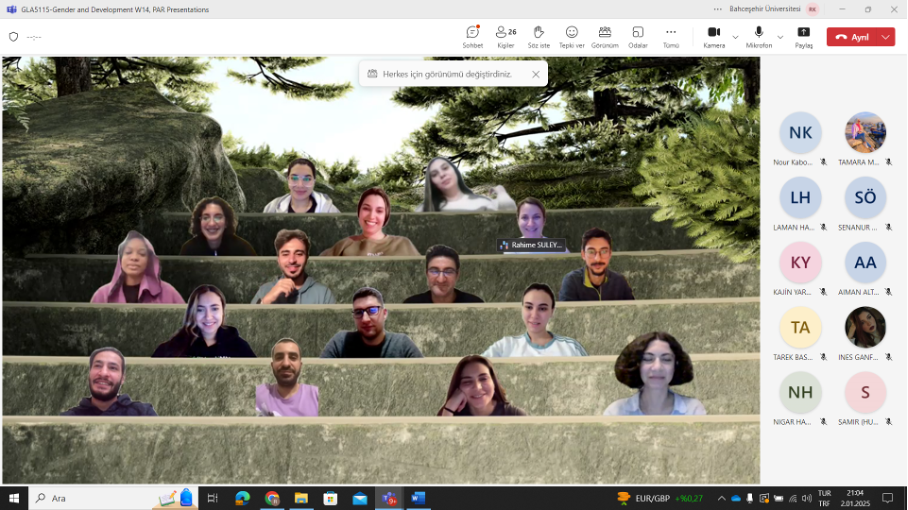We were delighted to host the FEJUST Certificate Award Ceremony on October 13, 2023, at the Dr. Çağkan Ubay Meeting Room. This special event brought together professors from the Department of Political Science and International Relations at BAU and the Cifal Istanbul team.

During the ceremony, we celebrated the accomplishments of the FEJUST Project, showcasing the impact of innovative teaching methods like "flipped learning." We also recognized the creative work of our students in producing Participatory Videos and PhotoVoice projects.
The ceremony was not just formal; it was a friendly gathering that encouraged lively conversations between students and professors.
The event began with a presentation by FEJUST Chair, Rahime Süleymanoğlu-Kürüm, who shared insights into the project's achievements in its first year. She also discussed our exciting plans for the future, which include various teaching activities, seminars, workshops, and research projects.
One of the most important moments of the ceremony was when we handed out certificates to students who had excelled in their courses. The results were outstanding, with 25 undergraduate students performing exceptionally well in "Gender in International Development" and 19 students achieving success in "Gender in EU Politics."
In the postgraduate courses, 10 students excelled in "Gender and Development," and 12 students performed exceptionally well in "Gender Politics in the EU." These achievements highlight the positive impact of the "flipped learning" method, which not only helps students gain knowledge but also encourages deep and comprehensive learning.
As we conclude the first year of the FEJUST Project, the achievements and this certificate ceremony demonstrate our strong commitment to advancing feminist perspectives. Looking ahead, we aim to build on these accomplishments, reaching more students and strengthening feminist ideas in academia. Together, we anticipate a future filled with even more significant achievements.
Certificate Ceremony 24 December 2024
We were delighted to host the FEJUST Certificate Award Ceremony at the Dr. Çağkan Ubay Meeting Room, A Bloc, Bahçeşehir University, bringing together colleagues from the Department of Political Science and International Relations (BAU) and the CIFAL Istanbul team. The gathering celebrated a year of intensive, student-centred teaching and showcased how FEJUST’s flipped learning, Participatory Video, and PhotoVoice activities continue to energise our classrooms and deepen learning.

Opening the event, FEJUST Chair Rahime Süleymanoğlu-Kürüm reflected on Year-2 achievements and outlined plans for the coming cycle—new seminars, practitioner workshops, and research collaborations that further embed feminist epistemic justice and decolonial perspectives in EU Studies.
A major highlight of the evening was our discussion of the special issue published in a national, peer-reviewed journal, which included FEJUST students as co-authors. This is an outstanding milestone that showcases FEJUST’s commitment to co-production of knowledge and to mentoring students through the full research pipeline—from idea development and writing clinics to peer review and publication. It also demonstrates how our classroom community translates into scholarly impact beyond the university.
Faculty and students then shared highlights from class projects, sparking lively conversations that carried on well beyond the formal programme.
Certificate recognitions (Year 2):
Undergraduate modules
Postgraduate modules
These outcomes reflect the strength of FEJUST’s pedagogy and the commitment of our students—including many from the private sector, civil society, and public administration—to translating feminist theory into practice. Certificates were issued in print and digital formats and carry the EU co-funded Jean Monnet logo, enabling students to share their achievement professionally.
As we close Year 2, the ceremony underscored FEJUST’s momentum: rigorous, participatory teaching; vibrant student outputs; student-authored publications; and a growing community advancing feminist, inclusive, and decolonial approaches to EU politics.


In the 2023–2024 academic year, the GLA5115 Gender and Development module concluded with an especially memorable final session. Built on a flipped learning approach and rich in interactive class activities, the course had created such momentum that even in an online setting, discussions remained animated and inclusive for hours. The last meeting, planned for three hours, stretched on as students were reluctant to leave the space they had co-created. Many expressed disappointment that the course was ending, a clear sign of the strong intellectual community and vibrant exchange fostered throughout the module.
